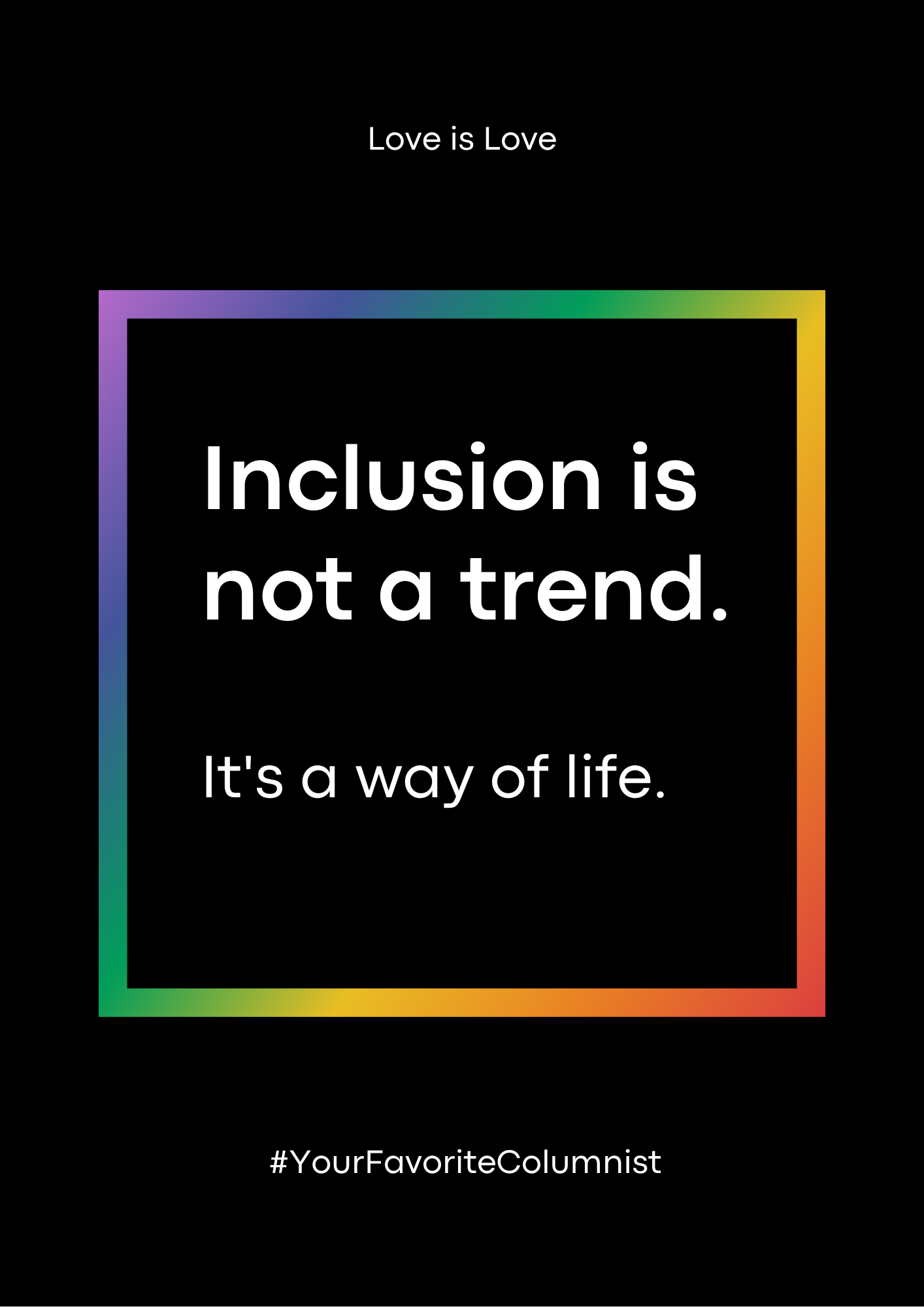Supreme Court Hearing on Same-Sex Marriage in Aruba and Curaçao: What Happened and What Lies Ahead?
In a much-anticipated and historic event, on Friday, November 10th, 2023, the Supreme Court (Hoge Raad Der Nederlanden) held a joint hearing regarding the Appellate Court’s groundbreaking decisions of December 7th, 2023 on same-sex marriage. The hearing was streamed live by the Supreme Court. The implications of this hearing have left the support of same-sex marriages and those against closely watching. I had previously written a column on the subject. If you missed it, you can find it here. In this follow-up column, I will share my impressions of the hearing. I will also share with you what happens next in this Supreme Court procedure.
Aruba
During the hearing, both parties in the Aruba and Curaçao cases presented arguments reflecting the profoundly polarized nature surrounding same-sex marriage. Some were more compelling than others. The Aruban government argued that the Appellate had overstepped its boundaries and had gone too far in reshaping the legal landscape. They emphasized the importance of maintaining the traditional definition of marriage.
The Aruba Pride Foundation and its lawyers, mr. Freek Vermeulen of the Dutch law firm NautaDutilh and the Aruba lawyer mr. David Wever, argued passionately for equal rights and the recognition of same-sex marriage. At one time, David paraphrased President Reagan’s words by asking the Supreme Court to
“bring down the wall of inequality”.
They emphasized the importance of inclusivity, human rights, and Aruba’s international obligations, citing the European Convention on Human Rights (EVRM) and the International Covenant on Civil and Political Rights (ICCPR). They urged the Supreme Court to uphold the Appellate Court’s decision and provide equal rights and privileges to same-sex couples under civil law.
Curaçao
In the Curaçao case, the Foundation was represented by a prominent lawyer, mr. Mirto Murray. Mirto is a veteran and displayed class, experience, and wisdom with his defense. He started by echoing the words of David Wever regarding the tearing down of the wall of inequality. That seems to be an off-script comment driven by Mirto’s “Messi-like”-field instincts. He took the stand and ensured David’s last statement would resonate with those present. He continued citing, among others, US cases as examples of progress in recognizing equality rights. As a skilled litigator, he was quick on his feet – or rather with his words – and we could see him change gears or pivot as the hearing progressed. In stark contrast, with attorney Peterson, who represented Curaçao. I think Peterson could have addressed the relevant legal aspects much better. Still, perhaps he accurately described the – out of touch with reality – views of the Curacao Government. Some of his remarks were somewhat offensive and likely irrelevant in a Supreme Court case. Those arguments, which I will not repeat, aren’t likely to surface as any case-winning argument for Curaçao, but they probably serve the “local consumption.”
Congratulations!
I congratulate my colleagues Mirto Murray, David Wever, and Chester Peterson, all Dutch Caribbean lawyers, for their debut in the Supreme Court. I was happy to see them hit this milestone. I was there years ago, and from experience, I can tell you that being on that “dance floor” or “stage” is impressive and a career highlight.
The Supreme Court President
The acting President of the Supreme Court, mr. M.V. Polak deserves a special mention. While opening the hearing and introduction, he paused his address to the public in Dutch and switched to Papiamento, our beloved mother tongue. He welcomed all of us from the islands who had either made the trip to The Hague or were watching via the live stream. His eloquent use of the Papiamento language and his decision to use it during the hearing is a shining example of inclusivity and unity, resonating deeply regardless of the outcomes of these significant cases. I thought this was a novel and historic. This act illustrates the strength of the Kingdom and underscores that the (Dutch) Supreme Court is our Supreme Court. I, and I am sure many others, felt warmly welcomed into the courtroom following his words.
The Procurator-General
The Procurator-General (PG), mr. G. Snijders, participated in the hearing. The PG’s primary job at the Supreme Court is to provide unbiased advice, known as an ‘advisory opinion,’ to help the judges in cassation cases. Unlike the case parties, the PG didn’t support a specific side but asked sharp questions and sought more details from the arguing parties. We could see one of the lawyers for the Curacao government trying to dodge one of the questions, but the PG was quick to re-address and rephrase the question, leaving no room for counsel to wiggle his way out (of not answering). The Supreme Court is not obligated to follow the PG’s advice. The PG is not a part of the deciding panel. His role is to be an advisory body, using his legal knowledge to guide the Supreme Court based on the hearing’s arguments. His neutrality and commitment to a fair, informed decision highlight his important role.
Upcoming Written Rebuttals
Before the PG issues his opinion and a final decision is reached, the parties involved can submit written rebuttals based on today’s joint hearing. Parties will submit these in the days to come. Following the advisory opinion of the PG, parties will have an opportunity to react to the advisory opinion. After that, it is up to the panel of the five justices to decide.
January 19th, 2024
Mark your calendars. On January 19th, 2024, the PG will deliver his advisory opinion to the Supreme Court. This advisory opinion will be published online and could provide insight into the case’s direction.
Potential Implications
The Supreme Court’s final decision in these cases holds immense significance for same-sex couples in Aruba and Curaçao and the broader legal landscape. If the Supreme Court upholds the Appellate Court’s decisions. In that case, it will pave the way for same-sex marriages to be legally recognized in both territories, granting equal rights and privileges to same-sex couples. This would mark a significant milestone for Aruba and Curaçao and send a powerful message about inclusivity and human rights. If, on the other hand, the Supreme Court overturns the Appellate Court’s decisions, it could be a significant setback for the rights of same-sex couples. Such a decision would likely generate widespread disappointment and spark further debates on separating religious beliefs from legal considerations. The government of Aruba rejected the Appellate Court’s decision and appealed to the Supreme Court. This – de facto -means the government of Ariba is opposed to same-sex marriages. The argument that the appeal was filed purely to determine if the Appellate Court had overstepped its boundaries can be classified as a cheap excuse and lacking political fortitude. I believe this is the government’s way to oppose same-sex marriages without saying they oppose same-sex marriages in an attempt to stay popular – for the time being- with both sides of the electorate.
Amendment in Aruba
In Aruba, some parliament members proposed an amendment to the Civil Code to include same-sex marriages. It is a valiant effort, but I think it is doomed. The same government of Aruba that rejected the Appellate Court’s decision controls the majority of parliament and will also vote against this amendment. Now, it appears that the Aruba government will delay the proposed amendment – which, as I said, controls the parliament. – until the Supreme Court’s decision. It is ironic since they argued that it was up to the legislature to decide on same-sex marriages and not the courts. If that is their belief, why would they care what the Supreme Court has to say?
Scope
We know the global trend favors more inclusion, diversity, and recognition of marriage equality rights. Aruba and Curaçao’s obligations under international human rights treaties and just plain common decency also add weight to the argument for equal rights. The Supreme Court will have to decide the case based on the matters of law and address the appeal grounds alleging that the Appellate Court overstepped its boundaries. It will also present the Supreme Court to review the law again. The last time this was presented to the Supreme Court was in 1990. Back then, the court rejected that argument. Almost 34 years have passed since. A lot has changed in the legal landscape. We will see if the Supreme Court will now rule for a more inclusive interpretation of the law. If not now, then when? We know politicians will not change the law, so the court is the only hope.
I think the government lawyers failed to show me that magical imaginary line they are clinging to. This is why it may clear the way for the Supreme Court to confirm the Appellate Court’s decision because the Appellate Court and the supporting arguments is not un-understandable (niet onbegrijpelijk). That may be all the Supreme Court needs to conclude to reject the appeal.
Referendum? No!
Some politicians argue that it is solely the legislature that should decide on same-sex marriages or that a referendum should be held. Murray reminded the court of two United States Court decisions. In both instances, it was the SCOTUS that put an end to discriminatory practices so that colored kids could sit along with white kids in a classroom Brown v. Board of Education (1954). The decision of Loving v. Virginia, 388 U.S. 1 (1967) allowed a woman of color to be married to a white man without the risk of both of them going to jail. Murray pointed out that had a referendum in both instances, the outcome would have caused the inequality to continue.
A referendum is not the path forward. If anything, it would be a path forward. The last referendum held in Aruba was in 1977 to address whether Aruba would become independent or stay within the Netherlands Antilles. The last referendum in Curacao was in 2005 when it was decided that Curacao would become an autonomous area within the Kingdom of the Netherlands. Not a question of equality. Neither referenda addressed any questions about civil inequality rights. Perhaps the politicians and religious groups proclaiming this should be reminded of this.
Wait 🕰️
As we await the Supreme Court’s verdict, the world watches to see whether Aruba and Curaçao will take a historic step toward equality and inclusivity or choose a different path, one that may leave many disappointed and divided. Until then, the legal landscape hangs in the balance, and the world watches closely for the Supreme Court’s verdict, which will shape the future of same-sex marriage in our neck of the woods. If the appeal is rejected, it would have been the Appellate Court’s reasoning and elaboration that would allow same-sex couples to get equal marriage rights.
Pioneers
Let us not forget that one lady, Rosa Parks, refused to sit in the back of the bus just because of her skin color. Where would the world be today were it not for those who, against all odds and in defiance of the law, stood up for what was right? Many among us, including those who are against same-sex marriages, benefit today from those actions. This includes all those religious groups who protest today but forget that their freedom of religion today is also protected by the same constitution that prevents discrimination based on gender.
Love is love
Just before all the formalities and legalities of the hearing, there was a moment of serenity, perhaps a moment of humanity. A moment to ask ourselves why? The plaintiffs from Curacao, same-sex couple Danika and Melinda, were allowed to say a few words. They didn’t add more legal rhetoric or repeat the arguments of their lawyers. They shared part of their story, feelings, and love with us. They remind us of pioneers such as Parks, Brown, and Loving. Watching their emotional plea reminded us about this legal battle’s real importance and meaning.
It also reminds us that love is worth fighting for – in and out of court. ❤️🩷🧡💛💚🩵
#LoveIsLove #YourFavoriteColumnist #YourFavoriteLawyer














